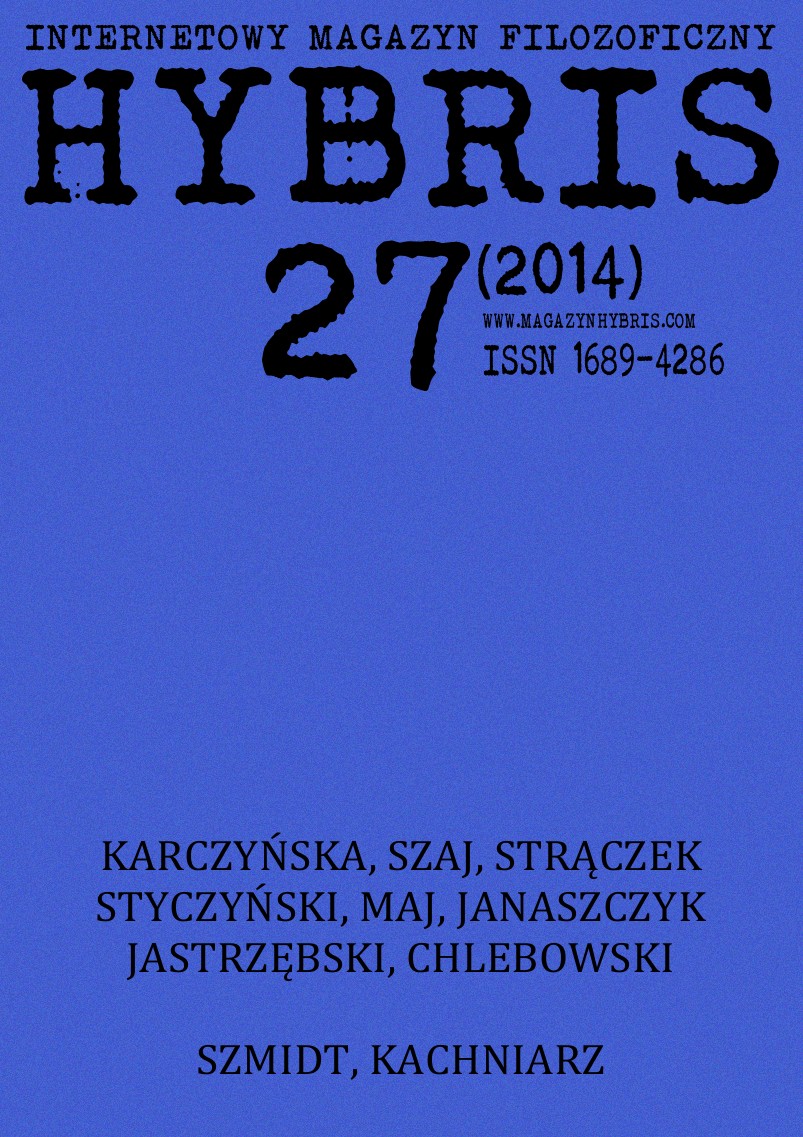Filozoficzno-religijne założenia i kulturotwórcze aspiracje historii religii Mircei Eliadego
DOI:
https://doi.org/10.18778/1689-4286.27.03Abstract
This article is focused on philosophical and religious presuppositions of Mircea Eliade’s history of religion. There are three areas on which his concept of religion is based: interest in humanities, like history, sociology, psychology and phenomenology of religion, the influence of philosophies and personal religious beliefs. He proclaims integral discipline which links scientific methods such as empiricism, structuralism, functionalism, antireductionism, antievolutionism, but also stresses empathic understanding of experience of the sacred. With properly applied method, which he called total hermeneutic, scientist will be able to examine the universal structures of historically and geographically remote religions. But this vision takes for granted ahistorical religious structures. Eliade does not use the methods developed by history. In fact, ontology and anthropology, which he characterizes as archaic, presupposes the existence of cosmic religion as the purest form of religious belief. Thus Romanian philosopher interprets religious facts, according to subjective and dogmatically accepted claims. He links the ideas of Oriental religions (liberation from the time), ethnographic beliefs (cult of nature) and Christianity (the idea of God incarnate in Jesus Christ). Finally, Eliade’s purposes are more practical. He seeks to revitalize desacralized culture by the conception of cosmic Christianity, which is syncretic and cosmocentric doctrine.
References
Allen, D., 1978, Structure and Creativity in Religion: Hermeneutics in Mircea Eliade’s Phenomenology and New Direction, The Hague: Mounton Publishers.
View in Google Scholar
DOI: https://doi.org/10.1515/9783110805529
Bronk, A., Człowiek — Dzieje — Sacrum — Religia, [w:] Mircea Eliade, Historia wierzeń i idei religijnych, Warszawa: PAX
View in Google Scholar
Cave, D., 1993, Mircea Eliade’s Vision for New Humanism, New York.
View in Google Scholar
Eliade, M., 1992, Próba Labiryntu. Rozmowy z Claude-Henri Roquetem, Sen.
View in Google Scholar
Eliade, M., 1993, Traktat o historii religii, przeł. J. Wierusz-Kowalski, Łódź: OPUS
View in Google Scholar
Eliade, M., 1996, Sacrum i profanum, przeł. R. Reszke, Warszawa: KR.
View in Google Scholar
Eliade, M., 1993, Sacrum, mit, historia. Wybór esejów, przeł. A. Tatarkiewicz, Warszawa: Państwowy Instytut Wydawniczy.
View in Google Scholar
Eliade, M., 1997, W poszukiwaniu historii i znaczenia religii, przeł. A. Grzybek, Warszawa: KR.
View in Google Scholar
Eliade, M., 1998, Aspekty mitu, przeł. P. Mrówczyński, Warszawa: KR.
View in Google Scholar
Husserl, E., 1967, Idee czystej fenomenologii i fenomenologicznej filozofii, Warszawa: PWN
View in Google Scholar
Lelito, A., 2008, Człowiek — animal mythicum w ujęciu Mircei Eliadego, Tarnów: Biblos.
View in Google Scholar
Prokopiuk, J., 1993, C. G. Jung czyli gnoza XX wieku, [w:] Carl Gustaw Jung, Archetypy i symbole. Pisma wybrane, Warszawa: PAX.
View in Google Scholar
Rega, A., 2001, Człowiek w świecie symboli. Antropologia filozoficzna Mircei Eliadego, Kraków: Nomos.
View in Google Scholar
Rennie, B. S., 1996, Reconstructing Eliade: Making Sense of Religion, New York: New York Press.
View in Google Scholar
Downloads
Published
How to Cite
Issue
Section
License

This work is licensed under a Creative Commons Attribution-NonCommercial-NoDerivatives 4.0 International License.






